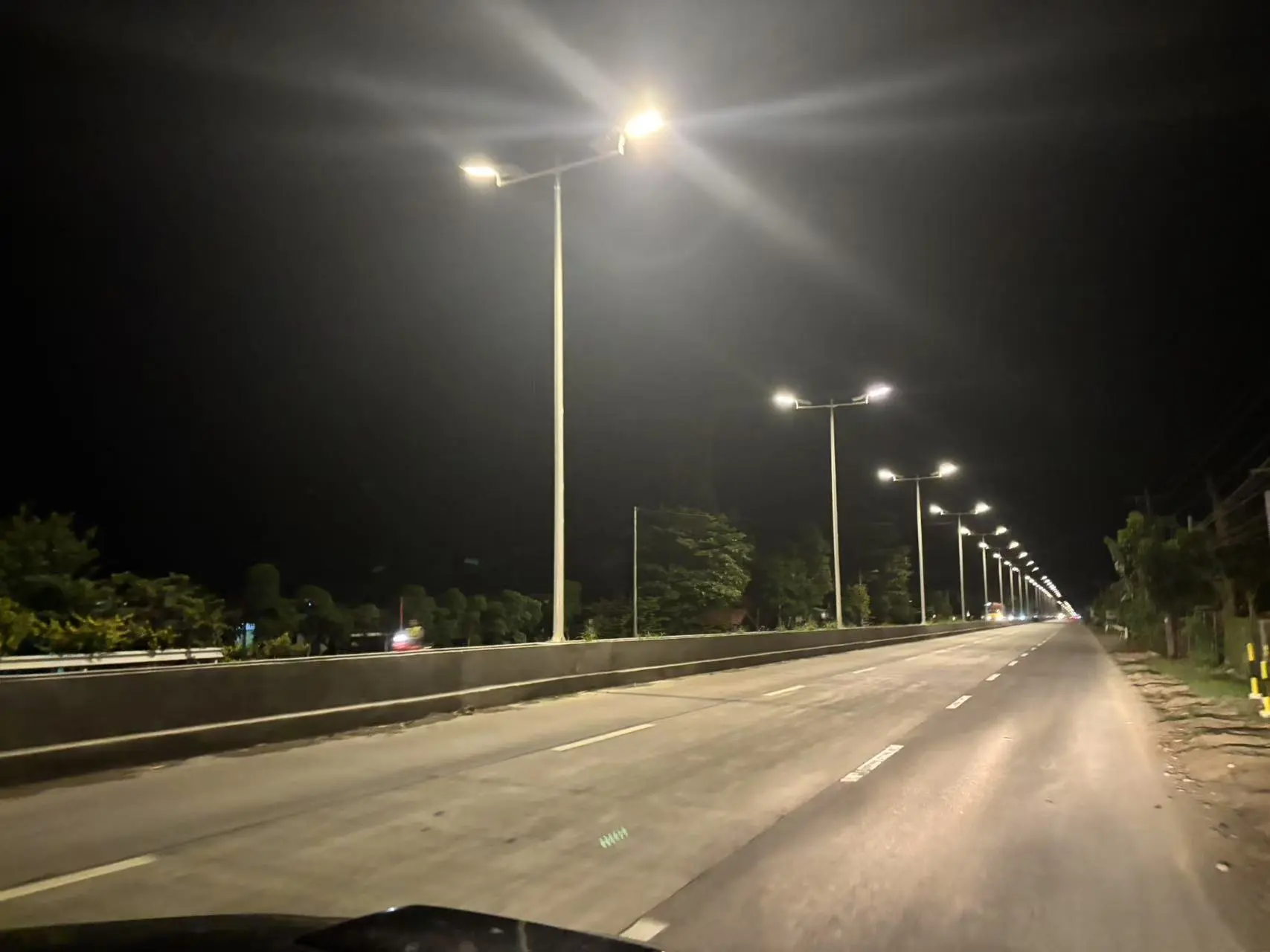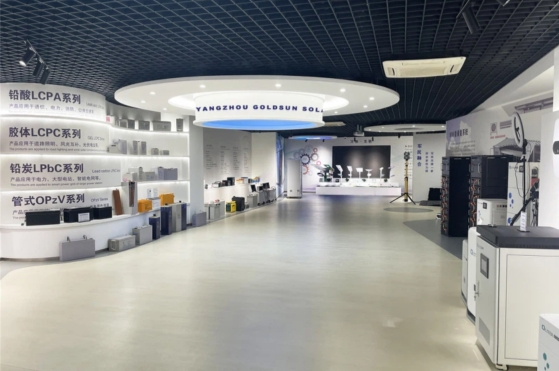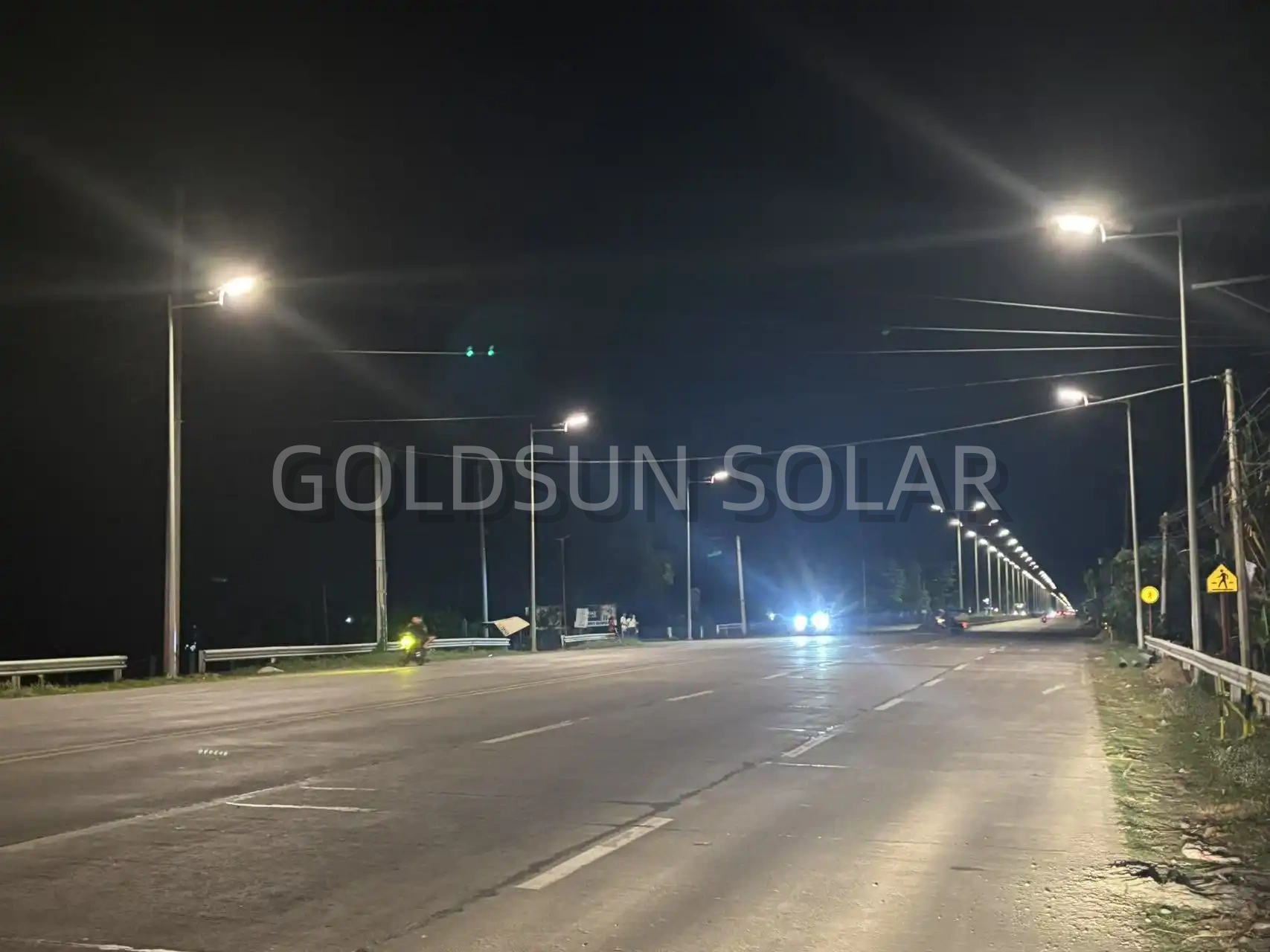How does panel glass quality affect solar light performance?
Light Transmission and Energy Conversion Efficiency
The quality of solar panel glass directly influences the amount of sunlight that reaches the photovoltaic cells beneath. High-quality glass boasts superior light transmission properties, allowing a greater percentage of solar radiation to penetrate and be converted into electricity. This enhanced light transmission translates to improved energy conversion efficiency, enabling solar street lights to generate more power even in less-than-ideal lighting conditions. As a result, street lights equipped with premium panel glass can maintain consistent illumination throughout the night, even during periods of reduced sunlight or cloudy weather.
Durability and Weather Resistance
Solar street lights are constantly exposed to various environmental factors, including rain, hail, dust, and temperature fluctuations. Superior panel glass quality offers increased durability and weather resistance, protecting the sensitive photovoltaic cells from damage and degradation. High-quality glass is less prone to cracking, chipping, or shattering, ensuring the longevity of the solar panels and maintaining their performance over time. This enhanced durability reduces the need for frequent replacements and repairs, ultimately lowering maintenance costs and improving the overall reliability of solar street lighting systems.
Tempered vs anti-reflective glass: Which is better for solar street lights?
Tempered Glass: Strength and Safety
Tempered glass is a popular choice for solar panel applications due to its exceptional strength and safety features. The tempering process involves heating the glass to high temperatures and then rapidly cooling it, creating a surface compression that enhances its strength. This treatment makes tempered glass up to five times stronger than standard glass, providing excellent resistance to impact and thermal stress. In the context of solar street lights, tempered glass offers superior protection against physical damage from falling debris, vandalism, or extreme weather events. Additionally, in the rare event of breakage, tempered glass shatters into small, rounded pieces, minimizing the risk of injury and making it a safer option for public spaces.
Anti-reflective Glass: Maximizing Light Absorption
Anti-reflective glass is engineered to minimize light reflection and maximize light transmission, making it an ideal choice for solar panel applications. By reducing surface reflections, anti-reflective glass allows more sunlight to reach the photovoltaic cells, thereby increasing energy conversion efficiency. This type of glass is particularly beneficial in low-light conditions or during early morning and late afternoon hours when the sun's angle is lower. For solar street lights, anti-reflective glass can significantly enhance performance by capturing more available light, resulting in improved charging capabilities and extended illumination periods. Moreover, the reduced glare from anti-reflective glass contributes to better aesthetics and reduces potential light pollution in urban environments.
The impact of glass quality on long-term maintenance costs
Reduced Replacement Frequency
The quality of solar panel glass plays a crucial role in determining the frequency of replacements required for solar street lights. High-quality glass, whether tempered or anti-reflective, exhibits superior resistance to degradation caused by environmental factors such as UV radiation, temperature fluctuations, and moisture. This enhanced durability translates to a longer lifespan for the solar panels, reducing the need for frequent replacements. By investing in premium glass quality upfront, municipalities and businesses can significantly lower their long-term maintenance costs associated with solar street lighting systems. The extended lifespan of high-quality glass also contributes to the overall sustainability of solar lighting projects by reducing waste and the environmental impact of manufacturing and disposing of replacement panels.
Enhanced System Efficiency and Performance Longevity
Superior glass quality not only extends the lifespan of solar panels but also helps maintain their performance efficiency over time. High-quality glass is less susceptible to microscopic scratches, pitting, and surface degradation that can accumulate over years of exposure to the elements. These minor imperfections, while seemingly insignificant, can gradually reduce light transmission and compromise the overall efficiency of the solar street lights. By preserving the integrity of the glass surface, premium-quality panels ensure that the photovoltaic cells continue to operate at peak efficiency for extended periods. This sustained performance translates to consistent illumination levels and reduced energy storage requirements, further minimizing the need for maintenance interventions and replacement of associated components such as batteries and LED fixtures.
In conclusion, the choice of solar panel glass is a critical factor in determining the success and longevity of solar street lighting projects. High-quality glass, whether tempered for strength or anti-reflective for maximum light absorption, offers numerous benefits that extend far beyond initial installation. By prioritizing glass quality, decision-makers can ensure optimal performance, reduced maintenance costs, and enhanced sustainability of their solar street lighting systems. As the demand for efficient and environmentally friendly lighting solutions continues to grow, investing in superior solar panel glass becomes increasingly important for both urban and rural development projects. For more information on selecting the right solar street lights with high-quality panel glass, please contact us at solar@gdsolarlight.com.



